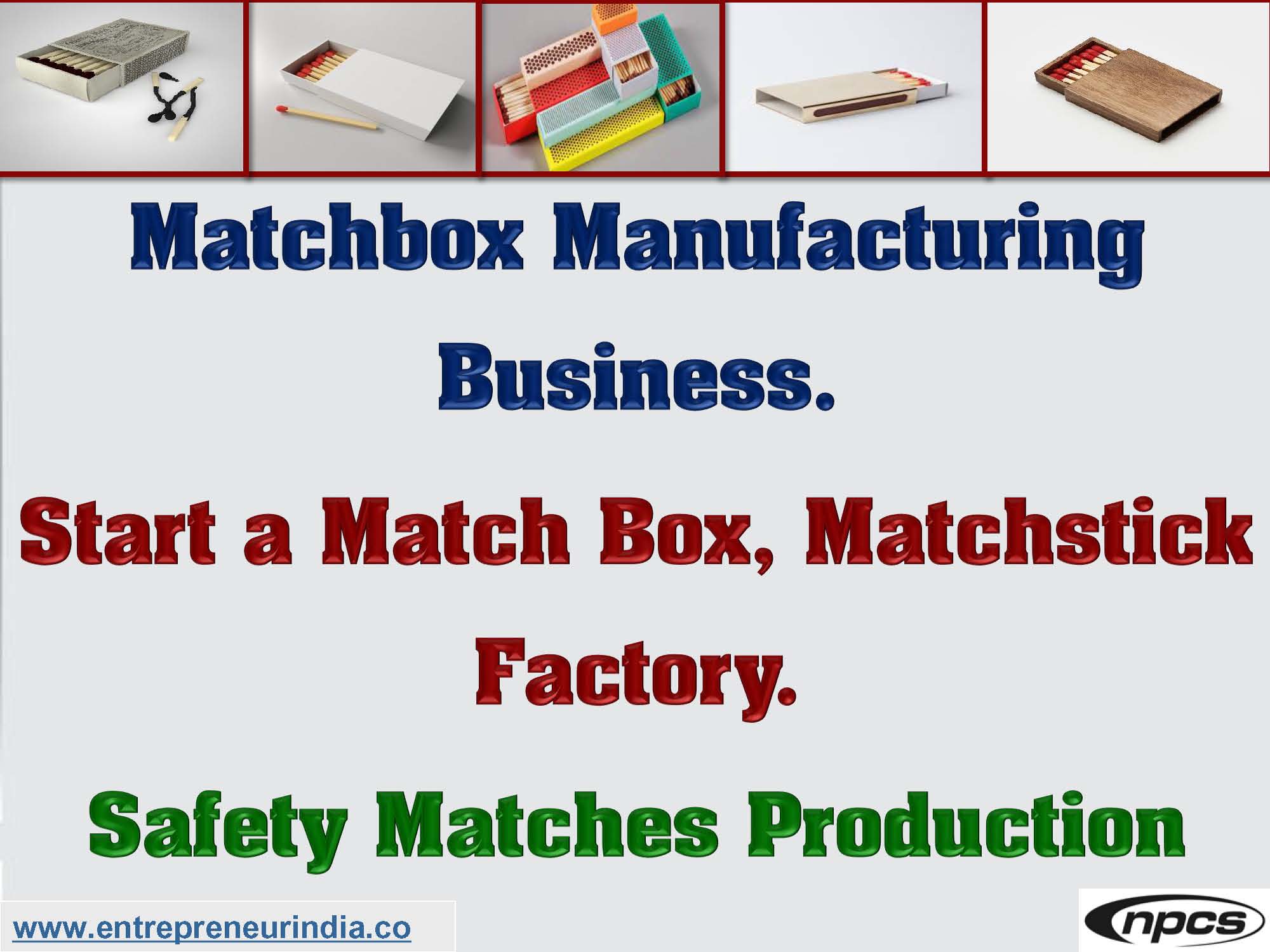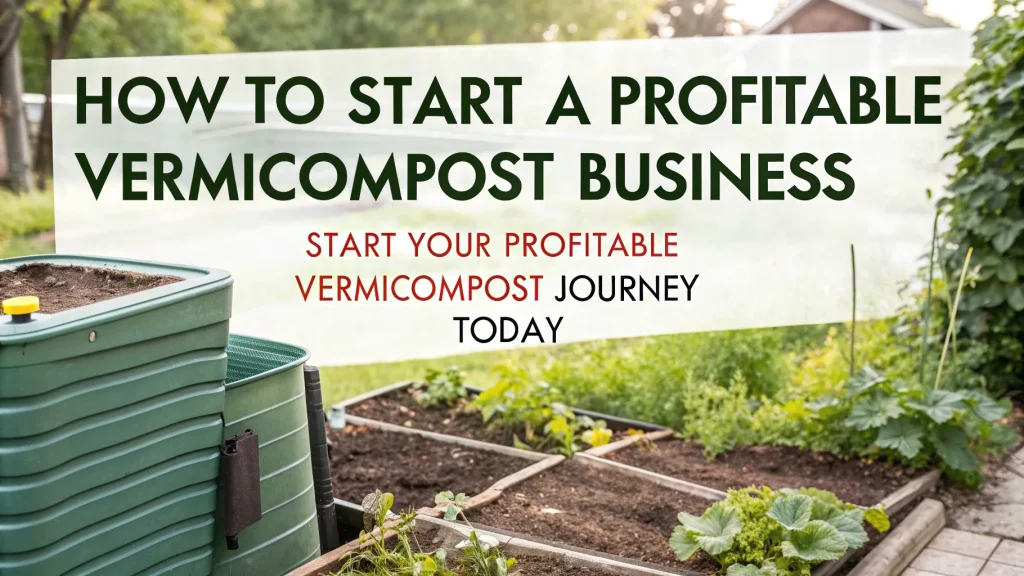
The Matchbox Manufacturing Business has been a steady and profitable industry for decades, particularly in developing countries like India, Bangladesh, and parts of Africa. Matchboxes are used in households, restaurants, temples, and rural regions where traditional ignition sources remain essential. With low production costs, consistent demand, and minimal technological complexity, the Matchbox Manufacturing Business offers a strong opportunity for small-scale entrepreneurs and MSMEs. Whether automated or manual, this business can generate regular income with a simple setup and access to raw materials.
Market Overview and Growth Potential
Despite the rise of electric lighters and gas stoves, matchboxes continue to hold significant relevance. The global demand is sustained by rural and semi-urban populations, hospitality industries, and cultural use cases like pujas and religious offerings. In countries with large populations and low electrification in remote regions, matchboxes remain a staple household item.
India is one of the largest producers and consumers of matchboxes in the world. The industry is dominated by small-scale and cottage manufacturers, particularly in Tamil Nadu, where towns like Sivakasi are renowned for mass production. The Matchbox Manufacturing Business also supports export markets in Africa, Middle East, and Southeast Asia.
Types of Matchboxes and Their Uses
The Matchbox Manufacturing Business can focus on producing different types depending on the target market and required standards:
-
Wax-Coated Matchsticks: Commonly used in homes for cooking and candles.
-
Cardboard Matchboxes: Lightweight and economical, ideal for FMCG bundling.
-
Wooden Matchboxes: Premium quality, used in restaurants and hotels.
-
Safety Matches: Ignite only on specific striking surfaces, safer for household use.
-
Book Matches: Often used for promotional branding, typically found in hotels.
These variations allow flexibility in product offering and customization depending on budget, consumer segment, or export requirement.
Manufacturing Process of Matchboxes
The Matchbox Manufacturing Business follows a structured process that can be executed using manual, semi-automatic, or fully automatic machinery, depending on production scale. Each step contributes to product safety, uniformity, and market readiness:
1. Prepare Match Splints
Manufacturers cut thin wooden sticks from softwood species such as poplar or pine, ensuring uniform dimensions. They dry and polish the splints, then soak them in ammonium phosphate to reduce afterglow and enhance burning efficiency.
2. Form and Dip Match Heads
Technicians prepare the match head composition using chemicals like potassium chlorate, sulfur, powdered glass, and glue. They dip the splints into this chemical mixture to form the ignition tips, ensuring even coating and safe reactivity.
3. Dry the Splints
Operators place the treated splints into drying chambers where controlled heat solidifies the match heads and strengthens their bond with the sticks.
4. Manufacture Matchboxes
Production teams create inner trays and outer shells using duplex or recycled cardboard sheets. They apply printed or branded labels before folding and assembling the matchboxes.
5. Fill and Pack Matchsticks
Workers load the dried matchsticks into trays and insert them into the outer shells. They then seal and group the boxes into retail or wholesale bundles—typically sets of 10, 50, or 100.
6. Conduct Final Packaging
The team shrink-wraps or packs the bundled matchboxes into cartons, preparing them for distribution to retailers or bulk buyers.
Throughout the process, manufacturers focus on consistent quality, fire safety standards, and efficient packaging to ensure reliable performance and competitive market appeal.
Raw Materials Used
The essential raw materials required in the Matchbox Manufacturing Business include:
-
Softwood logs or veneer for splints
-
Potassium chlorate, sulfur, and glue for head composition
-
Duplex or recycled cardboard for box casing
-
Printing ink and labels for branding
-
Safety friction chemical mix for striking surface
-
Ammonium phosphate for anti-afterglow treatment
All materials are easily available locally or through industrial suppliers. Some manufacturers even source recycled paper to reduce costs.
Machinery and Equipment
For starting a Matchbox Manufacturing Business, the choice of machinery depends on the scale and automation level. Common machines include:
-
Match Splint Cutting Machine
-
Dipping and Drying Machine
-
Head Composition Mixer
-
Box Assembling and Packing Machine
-
Label Printing and Pasting Machine
-
Safety Coating Application Machine
-
Shrink Wrapping or Carton Sealing Machine
A semi-automatic setup can be started with ?10–15 lakh, while a fully automated line may require ?25–40 lakh investment. Manual setups are also viable for cottage industries.
Land, Labor, and Utility Requirements
Setting up a Matchbox Manufacturing Business requires the following:
-
Land Area: 1000–1500 sq. ft. for production, storage, and packing
-
Power Supply: Single-phase or three-phase connection for machinery
-
Water: Limited quantity needed for cleaning and chemical mixing
-
Labor: 5–10 workers including machine operators, quality checkers, and packaging staff
-
Safety Equipment: Fire extinguishers, protective gloves, masks, and proper ventilation are mandatory due to the use of flammable materials
Zoning clearance and adherence to fire safety guidelines are important for operational licenses.
Legal and Regulatory Compliance
The Matchbox Manufacturing Business must comply with basic legal and environmental regulations:
-
Factory License from local industrial department
-
Fire Safety Certificate due to flammable chemicals
-
Pollution Control Certificate (if chemical disposal is involved)
-
GST Registration for taxation and billing
-
Trade License from the local municipality
-
Trademark Registration for branding the product
If producing safety matches for export, BIS certification or international testing may be required based on the destination country.
Branding and Sales Channels
To scale your Matchbox Manufacturing Business, product visibility and quality branding play a critical role. Effective strategies include:
-
Branded labels with vibrant prints and logos
-
“Buy-one-get-one” or bundling with kitchen products
-
Collaborations with retail shops, general stores, and kirana chains
-
Wholesale partnerships in rural markets
-
Participation in government supply bids or public utility contracts
-
Export tie-ups with merchants targeting Africa or the Middle East
The inclusion of safety instructions, batch numbers, and eco-friendly tags also boosts consumer trust.
Profitability and ROI
The Matchbox Manufacturing Business has high turnover potential with thin but consistent margins. On average:
-
Production cost per matchbox: ?0.25 to ?0.40
-
Selling price per matchbox: ?0.60 to ?1.00 depending on packaging and market
-
Profit margin: 30–50%
-
Monthly production: 1–2 lakh boxes in a small unit
-
Net monthly profit: ?40,000–?1,00,000 for small setups; higher with automation
Since the demand is volume-based, success lies in efficient production and bulk sales. With branding, exports, or government supply contracts, the margin and scale improve drastically.
Sustainability and Recycling Aspects
Modern units in the Matchbox Manufacturing Business are turning toward:
-
Eco-friendly packaging using recycled cardboard
-
Non-toxic head compositions that reduce emissions
-
Energy-efficient drying units or solar-assisted chambers
-
Waste wood recycling from splint cutting
As global attention shifts toward low-carbon manufacturing, integrating sustainability can add to brand value and unlock institutional buyers.
Conclusion
The Matchbox Manufacturing Business is a tried-and-tested enterprise that combines simplicity, consistent demand, and decent profit margins. It is ideal for first-time entrepreneurs, rural MSMEs, and export-focused units. With the right machinery, workforce, and local distribution network, this business can yield stable long-term returns. Its low capital requirement and easy raw material availability make it an excellent entry point into the manufacturing sector.
Niir Project Consultancy Services
An ISO 9001:2015 Company
106-E, Kamla Nagar, Opp. Spark Mall,
New Delhi-110007, India.
Email: npcs.ei@gmail.com , info@entrepreneurindia.co
Tel: +91-11-23843955, 23845654, 23845886, 8800733955
Mobile: +91-9811043595
Website: www.entrepreneurindia.co , www.niir.org





